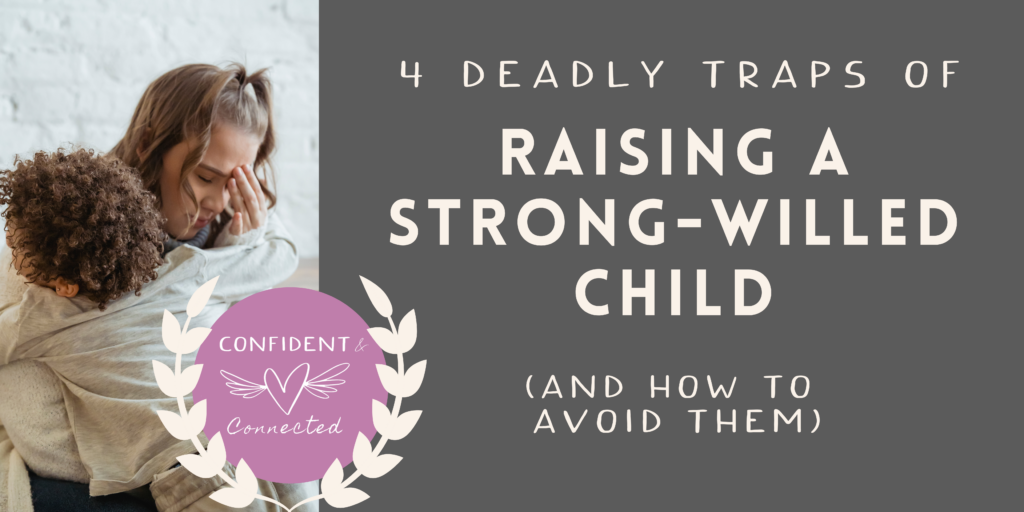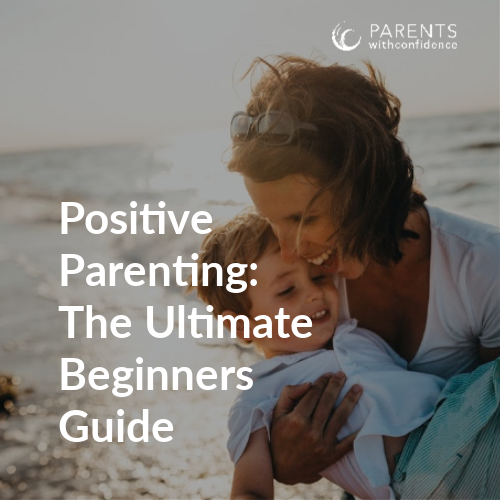Positive Parenting Isn’t Working: 7 Eye-Opening Reasons Why
Inside: When it seems like positive parenting isn’t working learn 8 common reasons that underlie frustrations and how to get back on track.
Anyone who’s tried positive parenting or positive discipline has something in common.
They’ve battled against the self-doubt, insecurity, and ambivalence that comes along with the risk of doing things differently.
They fear that positive parenting isn’t working.

In many instances, they’ve jumped off the familiar cliff of yelling, criticism, and knee jerk reactions only to find themselves crash landing in newer, unfamiliar waters, of collaboration and respectful discipline.
Change is hard. Parenting is harder. It’s no wonder it takes a while to get our sea legs when it comes to staying afloat with a more respectful and intentional approach of raising human beings.
Know that if it feels like positive parenting isn’t working, you are not alone.
Here are eight common reasons you perceive your new efforts aren’t working and how to get the confidence to stay on track with positive parenting techniques that contribute to your child’s mental and emotional well-being.
7 Reasons why it feels like positive parenting isn’t working
| Not being clear with limits.
When parents take interest in their child’s well-being and choose to be more intentional in their approach they are unsettled to hear the negative and toxic effects of parenting that relies on criticism, negativity, and fear. Often times this is what inspires them to seek out different ways of how to discipline a child.
Setting firm limits with respect is a bedrock of positive parenting and sometimes while ‘feeling out’ the respect part of the equation, it’s easy to become wishy-washy with the limits part of the equation.
If your child is pushing boundaries excessively (this is developmentally appropriate in many developmental stages and contexts!) make sure expectations are clearly laid out for specific situations and do your best to exude confidence when following through with setting limits and boundaries.

| Underestimating the power of connection
The most important and biggest positive parenting tip is your relationship with your child. It’s easy to overlook the importance of this integral concept and to push dedicating time and energy each day to strengthen your relationship to the back burner of the to-do list.
Relationship and connection are rooted in shared experiences and time spent truly present with each other. When it feels like positive parenting isn’t working, be even more deliberate in dedicating a short period of time each day to set down electronics, worries and your mental to-do’s to be present with your child and really enter into their world to connect with their heart. Connection is the conduit to cooperation.
|Taking behaviors personally
In my therapy profession, there is a concept known as ‘differentiation’ which is “the ability to be in emotional contact with others yet still autonomous in one’s own emotional functioning.” (Kerr & Bowen. 1988). It’s easy to overidentify with your child emotionally, attach their behaviors to your self-worth as a parent and let fear prompt you to revert to old reactive patterns of parenting.

Your child is an independent human being with needs all their own. They will behave in ways that trigger you because of the strong emotional connection, but when disciplining a child remind yourself that your child’s behaviors are a reflection of their needs in that moment, not of your parenting.
Keep modeling respectful communication and limit setting and hang on to your trust in the process (and outcome!) of positive parenting throughout your child’s behavioral ups and downs.
|Chasing control
Positive discipline seeks to guide a child in developing an internal compass for what’s right and wrong. It’s easy to nag, use physical force and coercion to improve child behavior in the moment but how will they learn to make good choices when you’re not around?
It’s frustrating when your child doesn’t listen when trying to get out the door. All humans have a need for control (quick note-a child’s role is not to meet a parents’ need for control) and it takes a lot of patience and intention to step back and help your child flex the muscles of good decision making and positive communication skills.
What it all boils down to is accepting that you simply can’t control your child or any other human being all the time. You may be able to try your darndest for 18 years, but it comes at the cost of your relationship and your child’s emotional well-being.
Even if it takes 2 minutes longer, your child will always respond better to a positive collaborative statement when trying to get out the door in the morning. Stop, recognize your need for control, and breathe.
| Skewed expectations
When you understand your child’s behaviors stem from many different causes and needs, it’s much easier to observe and address behaviors objectively and effectively, not compounding the behaviors with your own self-doubt of new positive parenting approaches.
Kids are immature by nature and learn by making mistakes! They are going to flex the muscles of their social and emotional development by pushing limits and exerting their independence. When your convinced positive parenting isn’t working, familiarize with your child’s developmental and emotional needs at each age and stage, as to keep appropriate expectations and remain calm and confident in limit setting.
|The child has an unmet developmental need
If challenging and disruptive behaviors of aggression and oppositionality persist for months and are highly disrupt to family relationships your child may have an unmet need related to their development.
Many children struggle to regulate their behaviors and emotions due to neurobiological conditions such as Attention Deficit Hyperactivity Disorder, Autism Spectrum Disorder, Sensory Processing Disorder, anxiety ect (forget the disorder part and know your child will need specialized supports to meet their full potential).
As a starting point, your pediatrician is a great person to share your observations and concerns with and additional referrals/recommendations for assessment and support can follow, in addition to learning how to be a positive parent with an aggressive child.
|Letting outside opinions impact your actions
Using positive discipline is not the mainstream way of doing things yet, and others may not be shy in offering their opinions of your more respectful approach. When beginning this journey, it’s easy to allow the criticism and questions from those around you to infiltrate your thinking and therefore your behaviors leading to inconsistency or lack of follow through in approach.
Notice when negative thinking is taking over and remind yourself that you are the one who knows what’s best for your child and it’s not what’s easiest in the moment (ie pleasing others or gaining quick control over our child).
|Forgetting about long term outcomes
Respectful conscious parenting is trying and emotionally draining. It requires parents to reflect on their own emotional triggers and upbringing and to truly examine what qualities they want to instill in their child.
Staying the course initially is challenging and even more so when we forget the ‘why’ behind positive parenting, to raise emotionally healthy resilient children that can thrive in the world someday without us.
Positive parenting isn’t working… or maybe it is?
I love this quote from Theodore Roosevelt,
“Far and away the best prize that life has to offer is the chance to work hard at work worth doing.”
What ‘work’ in this world could be more worth doing than raising an emotionally healthy human being who can meet their full potential?
Beginning the journey of positive parenting (this could mean years people!) won’t be easy, and it will take a lot of time, self-growth and effort but keep believing.
Believe in the power of modeling over preaching and nagging to create internal morals and values.
Believe in the power of relinquishing some control to teach your child self-control.
Believe in the power of your own self-growth to promote your child’s self-growth.
Believe that showing respect to your child garners respect from your child.
Believe that connection and attachment are basic needs and should always come first.
Believe in the golden rule, treating your child the way you’d like to be treated by those who love and support you.
Believe that positivity is always a stronger force than negativity.
Raising a child with their well-being in mind is not quick or easy. Keep believing in the principles behind positive parenting, forgive yourself when you slip, and choose again every day, to strive for positive parenting.
P.S. Check out these articles to dig deeper into why Positive Parenting is best for your child.











Amazing article! But how to deal with such moment when due to positive parenting your child cross out respect limits?
Hi Susan- I’m not sure exactly what you mean. I’d be happy to give feedback if you can provide a bit more detail on what you’re feeling challenged with specifically. Thanks! Angela
Great article! I needed this